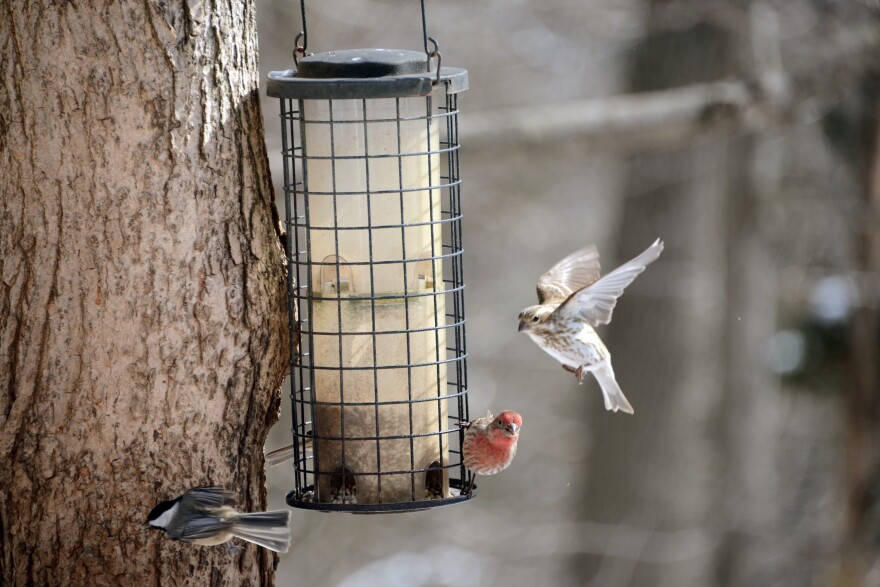The saga of the mysterious bird illness in more than a half dozen states appears to be coming to an unceremonious end.
Kentucky’s Department of Fish and Wildlife is giving residents in six Kentucky counties the greenlight to put their birdfeeders back up, but the reasons behind the mass bird illness continues to elude scientists.
Back in June, more than a half-dozen states began receiving reports of song birds dropping dead with swollen, crusty eyes. Others appeared to stare blankly into space, signaling neurological problems.
At its peak in Kentucky, the state received nearly 300 reports from residents that researchers believe to be related to the illness. The reports indicate blue jays, common grackles and European starlings were the most commonly affected.
On Thursday, Kentucky Fish and Wildlife rescinded its recommendation that residents stop feeding birds in Boone, Bullitt, Campbell, Jefferson, Kenton and Madison counties.
Reports of dead or dying birds have now slowed enough state officials to say it’s OK to put back up bird feeders and baths, though the department strongly recommends disinfecting feeders and baths regularly.
“Should signs of disease appear, the department recommends taking down and disinfecting the feeders and birdbaths at that location,” a department press release said.
But scientists are still stumped over what caused the mortality event in the first place.
Dr. Christine Casey, wildlife veterinarian with Kentucky Fish and Wildlife, said labs are still working to understand the role that bacteria and toxicology played in sickening the birds, but there are likely multiple factors contributing to the mortality event.
Based on testing, scientists were able to rule out salmonella, chlamydia, West Nile virus, avian influenza and several other illnesses in the sickened birds.


